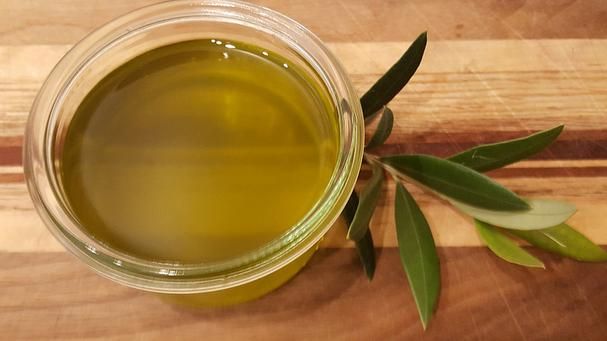
When it comes to eating healthy, the cooking oil you use matters more than you might think. We often view cooking oils as mere facilitators of flavor and texture, but their role in our diet extends far beyond the skillet. The truth is, the type of oil gracing your pantry shelves can significantly influence your body’s internal environment, particularly its inflammatory response.
Inflammation, in its acute form, is a vital part of the body’s natural defense system, a healing mechanism that kicks in after injury or infection. However, when inflammation becomes chronic, it can silently contribute to a host of serious health problems, including arthritis, heart disease, diabetes, and even cognitive decline. While many factors contribute to chronic inflammation, dietary choices stand out as one of the most controllable and impactful.
A crucial element in this dietary puzzle is the balance of fatty acids, particularly omega-6 and omega-3 fats. While both are essential for health, an excess of omega-6 fatty acids without adequate omega-3s to counterbalance them can unfortunately tip the scales towards a pro-inflammatory state. In this in-depth exploration, we’ll unmask seven common cooking oils that, despite their widespread use, may be inadvertently fueling inflammation in your body, prompting us to reconsider their place in our kitchens.

1. **Soybean Oil**Soybean oil is an omnipresent ingredient in modern diets, finding its way into everything from salad dressings to packaged snacks, largely due to its affordability and versatility. However, this ubiquity comes with a significant health caveat. It is notably high in omega-6 fatty acids, specifically linoleic acid, a type of polyunsaturated fat that, while essential for bodily functions, can contribute to inflammation when consumed in excessive amounts without sufficient balancing omega-3s.
Research has increasingly highlighted the potential inflammatory impact of high soybean oil consumption. Studies published in 2024, for instance, indicated that diets rich in soybean oil could trigger an increased inflammatory response, findings observed initially in animal models but with implications also suggested for human health. This growing body of evidence urges caution, especially given how pervasive soybean oil is within the typical Western diet, often pushing individuals past healthy intake levels without them even realizing it.
The concern is amplified by soybean oil’s frequent inclusion in processed and fast foods, making it incredibly easy to consume more than is nutritionally advisable. Nutrition experts warn that the average Western diet often contains more soybean oil than is genuinely healthy, a factor that contributes to the development of long-term inflammatory diseases. Furthermore, a critical point of concern arises from the occasional presence of trans fats in partially hydrogenated soybean oil, which are notorious for their ability to aggravate inflammation even further, posing a double threat to cellular health.
As dietitian Luke Sanders aptly points out, “We’re consuming more soybean oil than ever before, and it’s quietly impacting our bodies.” This oil, prevalent in so many processed foods, directly contributes its high omega-6 content, creating an imbalance that can foster systemic inflammation. For those genuinely committed to keeping their inflammatory markers in check and safeguarding their long-term health, soybean oil stands out as a hidden culprit that undeniably warrants a second, more critical look.
Read more about: Chew Wiser, Feel Lighter: The 14 Worst Snacks for Your Liver According to Hepatology Consultants

2. **Corn Oil**Corn oil is a long-standing staple in numerous kitchens, celebrated for its neutral taste profile and its impressively high smoke point, which makes it a favored choice for frying. Yet, beneath these practical advantages lies a concerning connection to inflammation. Much like soybean oil, corn oil is exceptionally rich in omega-6 fatty acids, particularly linoleic acid, a characteristic that places it firmly in the category of oils that can exacerbate inflammatory responses in the body when consumed without proper balance.
Compelling research from 2025 has brought this concern into sharper focus, revealing that individuals who regularly incorporated corn oil into their diets experienced a significant elevation in C-reactive protein (CRP) levels. CRP is a well-established and critical biomarker for inflammation, and its rise signals a potential increase in systemic inflammatory activity. This evidence underscores the oil’s capacity to contribute to an inflammatory environment, despite its culinary convenience.
The omnipresence of corn oil in processed snacks, fried foods, and even margarine means it subtly infiltrates the average diet far more than most people recognize. This covert consumption makes it challenging to maintain the delicate omega-6 to omega-3 balance essential for optimal health. Nutritionist Dr. Elaine Chang cautions that “Corn oil’s high omega-6 content can quickly overwhelm the anti-inflammatory benefits of omega-3s if you’re not careful,” emphasizing the need for dietary vigilance.
Moreover, the very characteristic that makes corn oil popular for frying—its high smoke point—can paradoxically contribute to its inflammatory potential. When heated to high temperatures, such as during deep-frying, corn oil can generate harmful compounds known as oxidized fats. These compounds are known to not only increase inflammation but also cause cellular damage. Experts collectively advise that even seemingly modest daily intakes can accumulate over time, potentially fueling and sustaining chronic inflammatory conditions, making corn oil a choice worth reconsidering for health-conscious consumers.
Read more about: Timeless Resonance: Billy Crystal on the Enduring Magic and Chemistry of ‘When Harry Met Sally’ with Meg Ryan

3. **Canola Oil**Canola oil frequently enjoys a reputation as a health-conscious choice, often promoted as “heart-healthy” in grocery store aisles. Its widespread acceptance is partly due to its lower saturated fat content and the presence of some omega-3 fatty acids. However, the narrative surrounding canola oil is more nuanced than its marketing suggests, particularly concerning its potential impact on inflammation within the body.
The primary concern stems from the ratio of fatty acids and the refining process. While canola oil does indeed contain some beneficial omega-3s, its much higher concentration of omega-6 fatty acids can, similar to other oils, disrupt the body’s crucial omega-6 to omega-3 balance. A comprehensive 2025 review of various dietary fats shed light on this, correlating regular consumption of conventionally processed canola oil with elevated inflammatory markers in specific cohorts of individuals, challenging its long-held image as an unequivocally healthy staple.
Moreover, the vast majority of canola oils available on the market are highly refined. This industrial processing often involves high heat, bleaching, and chemical solvents, which can lead to altered fat structures and leave behind trace amounts of processing chemicals. Crucially, this refining can also strip the oil of its naturally occurring beneficial nutrients and antioxidants, thereby diminishing its inherent health benefits and potentially creating compounds that contribute to inflammation when consumed on a regular basis.
As registered nutritionist Jane Porter emphasizes, “We need to be more aware of the processing behind these oils and how it affects our bodies.” It’s important to distinguish between highly refined canola oil and its cold-pressed counterpart, with the latter retaining more anti-inflammatory properties due to minimal processing. Furthermore, while canola oil itself might not be inherently unhealthy in its purest form, registered dietitian Melissa Rifkin rightly points out that “it’s often used in many over-processed foods that are,” linking its consumption to broader dietary patterns that undeniably fuel inflammation.
Read more about: The Lost Arts of the Pit: 18 Traditional Barbecue Techniques Every Home Cook Should Master

4. **Sunflower Oil**Sunflower oil frequently appears on grocery shelves, marketed as a light, versatile, and even heart-healthy option, primarily because it is low in saturated fat and contains vitamin E, a well-regarded antioxidant. While these characteristics might sound appealing, a deeper dive into its nutritional profile reveals a potential downside, particularly concerning its role in systemic inflammation. This popular oil is notably high in omega-6 fatty acids, which, when consumed in disproportionate quantities relative to omega-3s, can foster an inflammatory state within the body.
Recent scientific investigations have increasingly cast a shadow on sunflower oil’s health halo. A 2025 dietary study, for instance, provided compelling evidence, demonstrating that participants who regularly incorporated sunflower oil into their cooking experienced elevated inflammatory markers in their bodies. These markers were significantly higher when compared to individuals who opted for cooking oils with a more balanced fatty acid composition, indicating a direct correlation between sunflower oil consumption and increased inflammation.
Adding to this concern is the typical refining process that most commercially available sunflower oils undergo. This industrial treatment often strips away the very beneficial nutrients and antioxidants that might otherwise offer protective effects. Simultaneously, the high-heat and chemical-intensive refining can introduce harmful compounds, which can further contribute to the body’s inflammatory burden. This means that while the raw sunflower seed might be healthful, its oil, post-processing, can present a different story.
For individuals grappling with existing inflammatory conditions, or those simply striving to maintain optimal health, these factors associated with sunflower oil are particularly critical. The subtle, yet cumulative, effect of regular consumption of omega-6-rich, refined sunflower oil can quietly exacerbate symptoms and undermine overall well-being. Nutritionists like Daniel Brooks have underscored the importance of understanding these impacts, urging consumers to be discerning about the oils they choose to include in their daily cooking routines.
Read more about: Beyond the Basics: 14 Forgotten Emergency Foods That Are Smart Buys for Modern Preppers

5. **Vegetable Oil Blends**The term “vegetable oil” often appears innocuously on labels, suggesting a wholesome, plant-derived product. However, this generic label typically signifies a blend of various oils, most commonly including soybean, corn, and sometimes cottonseed oil. The critical commonality among these constituent oils is their high concentration of omega-6 fatty acids. This blend, therefore, acts as a concentrated source of fats that, when consumed in excess, can significantly contribute to an imbalanced omega-6 to omega-3 ratio, a primary driver of inflammation in the body.
These ubiquitous vegetable oil blends are not only found in home kitchens but are also a cornerstone of the fast-food industry and a pervasive ingredient in countless packaged and processed foods. Their widespread use means that individuals are frequently consuming these omega-6-heavy oils, often without full awareness of the sheer quantity. This high intake, particularly when not counterbalanced by sufficient omega-3s, directly escalates the risk of chronic inflammation, silently impacting health over time.
Adding another layer of concern is the extensive refining process that these generic vegetable oil blends typically undergo. This industrial treatment often involves the application of high temperatures and the use of chemical solvents to extract and purify the oils. Unfortunately, these aggressive processes can lead to the formation of potentially harmful byproducts, including trans fats, which are widely recognized as potent inflammatory agents. These altered fat structures and chemical residues can further exacerbate inflammatory responses within the body, diminishing any perceived health benefits.
A compelling 2024 nutrition study underscored these concerns, revealing that individuals whose diets heavily featured vegetable oil blends exhibited a significantly skewed omega-6 to omega-3 ratio, a metabolic imbalance closely linked to a spectrum of inflammatory problems. As registered dietitian Maria Collins succinctly put it, “We often don’t realize how much vegetable oil we’re eating—it’s in everything.” The convenience and affordability of these blends, while attractive, ultimately come at a significant cost to inflammatory health, making them a prime candidate for careful consideration and potential reduction in one’s diet.
Read more about: The Lost Arts of the Pit: 18 Traditional Barbecue Techniques Every Home Cook Should Master

6. **Peanut Oil**Peanut oil holds a cherished spot in many cuisines, particularly Asian and West African dishes, prized for its distinctive nutty flavor and its robust ability to withstand high-heat cooking methods, making it ideal for stir-frying and deep-frying. However, its culinary appeal belies a less desirable nutritional profile when it comes to inflammation. Like many other oils derived from common seeds and legumes, peanut oil contains a substantial amount of omega-6 fatty acids, a factor that requires careful consideration for those focused on managing inflammatory responses.
Scientific investigations have increasingly brought peanut oil’s inflammatory potential into focus. Research conducted in 2024, for instance, demonstrated a clear link between diets abundant in peanut oil and elevated levels of inflammatory cytokines. These cytokines are potent signaling molecules secreted by immune cells, acting as critical orchestrators in initiating and sustaining inflammatory processes throughout the body. Their increased presence is a direct indicator of heightened systemic inflammation.
Beyond its general fatty acid composition, peanut oil presents an additional layer of inflammatory risk for a significant portion of the population: allergies. For individuals with peanut allergies, exposure to this oil can trigger acute allergic reactions, which themselves are profound inflammatory cascades. Even in those without overt allergies, the high omega-6 content, when consumed regularly and in large quantities, can incrementally nudge the body towards a state of chronic inflammation, undermining overall cellular and immune balance.
As Chef and wellness advocate Tara Lee insightfully observed, “It’s easy to overlook the impact of peanut oil when it tastes so good, but the science is clear.” The pleasure derived from its unique flavor and cooking properties can often overshadow its potential drawbacks. For individuals actively working to mitigate inflammation, understanding peanut oil’s high omega-6 load and its documented effect on inflammatory markers is crucial. It urges a conscious choice to either limit its use or seek healthier alternatives that support an anti-inflammatory lifestyle.
Read more about: Beyond the Basics: 14 Forgotten Emergency Foods That Are Smart Buys for Modern Preppers

7. **Coconut Oil**Coconut oil has experienced a meteoric rise in popularity within the wellness community over recent years, lauded as a superfood brimming with health benefits, from metabolism boosting to cognitive enhancement. However, a closer look at scientific consensus reveals a more tempered perspective, especially when considering its impact on inflammation and cardiovascular health. While it does possess some unique medium-chain fatty acids, its primary characteristic is its remarkably high saturated fat content, a factor that requires careful consideration.
Registered dietitian Melissa Rifkin highlights that a significant reason certain cooking oils are linked to inflammation is their high saturated fat composition, distinguishing them from the healthier unsaturated fats found in foods like avocados. She specifically names coconut oil, alongside palm oil, as being particularly rich in these saturated fats. Decades of research have consistently linked diets high in saturated fats to elevated LDL (“bad”) cholesterol levels and an increased risk of heart disease, which remains a leading cause of mortality globally.
Contrary to its once-celebrated status as an anti-inflammatory panacea, current scientific studies suggest that coconut oil may not be the optimal choice for those prioritizing anti-inflammatory properties, precisely because of its potential to raise LDL cholesterol levels. The American Heart Association, for instance, recommends keeping saturated fat intake to under five percent of your overall daily diet, a guideline that becomes challenging to meet with liberal use of coconut oil.
This doesn’t mean coconut oil should be entirely banished from your home, but rather that its use should be approached with mindful moderation. Rifkin suggests that the best way to utilize this distinctive oil might be primarily as a beauty product, reserving its culinary applications for occasional use. While it can undoubtedly impart a unique and desirable flavor to certain dishes, adopting it as a “go-to” cooking oil for everyday purposes may not offer the most beneficial outcomes for promoting heart health and managing systemic inflammation, encouraging a balanced perspective on its role in a health-conscious kitchen.
Navigating the world of cooking oils can feel like a complex culinary quest, especially when aiming for a diet that actively reduces inflammation. While we’ve just uncovered several oils that, despite their popularity, might be quietly fueling inflammatory processes in the body, the good news is that there’s an abundance of choices that can genuinely support your well-being. This next section of our journey will briefly touch upon one more oil that warrants careful consideration due to its saturated fat content, then pivot to an exciting exploration of beneficial, anti-inflammatory oils. We’ll arm you with the knowledge to make informed decisions, highlighting their unique health advantages, ideal culinary applications, and practical strategies for a balanced, health-conscious kitchen.
Read more about: Beyond the Basics: 14 Forgotten Emergency Foods That Are Smart Buys for Modern Preppers

8. **Palm Oil**Palm oil is another cooking oil that frequently appears in processed foods, making it a ubiquitous, albeit often hidden, ingredient in our diets. Registered dietitian Melissa Rifkin points out that palm oil, much like coconut oil, is notably high in saturated fats. These types of fats are distinct from the healthier unsaturated fats found in foods like avocados and have been consistently linked to raising LDL (bad) cholesterol levels and increasing the risk for heart disease, a leading cause of mortality.
The American Heart Association advises keeping saturated fat intake to less than five percent of your total daily diet. Given palm oil’s high saturated fat content, its widespread inclusion in processed snacks, baked goods, and other convenient foods can make it challenging to adhere to these guidelines. Consciously reducing intake of processed foods is therefore a key step in minimizing exposure to this inflammatory culprit.
Beyond its nutritional profile, palm oil also carries significant environmental concerns, being “notoriously known for contributing to deforestation,” as Rifkin highlights. This dual impact—on both personal health and planetary well-being—provides compelling reasons to consider minimizing its use in your diet. Understanding its prevalence in processed items empowers consumers to make more deliberate choices.
Read more about: Beyond Headlines: How Bogor’s Institutions and Local Media Champion the Enduring Memory of a City’s Rich Heritage

9. **Extra Virgin Olive Oil**When it comes to the best anti-inflammatory oils, extra virgin olive oil (EVOO) consistently tops the list, earning its reputation as a true kitchen hero. This beloved oil is celebrated for being exceptionally rich in monounsaturated fats, particularly oleic acid, alongside a powerhouse of antioxidants. These compounds work synergistically to provide significant health benefits, extending far beyond its delicious flavor profile.
A standout component in EVOO is oleocanthal, a natural compound that exhibits anti-inflammatory properties remarkably similar to ibuprofen, by blocking enzymes known as COX-1 and COX-2, which are central to inflammatory pathways. Extensive research has substantiated these benefits, showing that regular consumption of extra virgin olive oil can help reduce chronic inflammation and potentially lower the risk of conditions like arthritis, heart disease, and neurodegenerative disorders.
Registered dietitian Melissa Rifkin further underscores olive oil’s benefits, noting its high content of omega-3 fatty acids, which are crucial for heart health. She also highlights its antioxidant richness, which contributes to its inflammation-reducing capabilities. Contrary to common misconceptions, Rifkin points out that “Olive oil makes a great everyday cooking oil because it actually has a high smoke point, which not everyone realizes,” making it versatile for various culinary applications beyond just salad dressings.
Read more about: The Lost Arts of the Pit: 18 Traditional Barbecue Techniques Every Home Cook Should Master

10. **Avocado Oil**Avocado oil has surged in popularity as a health-conscious choice, and for good reason. It stands out as another excellent source of oleic acid, a beneficial monounsaturated fat that contributes significantly to its anti-inflammatory profile. Beyond healthy fats, this vibrant green oil is packed with vitamin E and other antioxidants, which play a crucial role in safeguarding cells from oxidative stress—a known contributor to systemic inflammation.
Further research into avocado oil reveals that its plant sterols, such as beta-sitosterol, can actively help lower levels of pro-inflammatory markers like C-reactive protein (CRP). These sterols also have the added benefit of potentially blocking the absorption of dietary cholesterol, offering a multi-faceted approach to supporting cardiovascular health and reducing inflammatory risks within the body.
Melissa Rifkin confirms that, much like olive oil, avocado oil is “high in unsaturated fats, linked to lowering inflammation.” This makes it an invaluable addition to an anti-inflammatory diet. Its versatility is further enhanced by its impressive smoke point, typically ranging from 480–520°F, which makes it suitable for a wide array of cooking methods, from high-heat searing to roasting and stir-frying, without compromising its nutritional integrity.
Read more about: 14 Things Nutritionists Really Wish You’d Stop Eating for Breakfast

11. **Algae Cooking Oil**Emerging as a truly innovative player in the world of healthy fats, algae cooking oil offers a compelling profile for those seeking to combat inflammation. This oil is remarkably rich in omega-9 fatty acids, providing a substantial 25% more omega-9s and an impressive 75% less saturated fat compared to traditional choices like olive and avocado oil. This unique composition positions it as a superior option for heart health and inflammation management.
Scientific investigations have consistently shown that omega-9 fatty acids, particularly oleic acid, are highly effective in decreasing markers of inflammation throughout the body. Furthermore, these beneficial fats actively support cardiovascular health, contributing to a robust and resilient circulatory system. The specific fatty acid balance in algae oil makes it a powerful ally against chronic inflammatory processes.
What truly distinguishes algae cooking oil is its exceptional heat stability. With a remarkable smoke point of approximately 535°F, it stands as one of the most heat-stable cooking oils available. This characteristic makes it an ideal choice for high-temperature cooking, ensuring that its beneficial nutrients remain intact and that harmful compounds are not formed, making it perfect for anything from a delicate drizzle to a high-heat sear.
As highlighted in our context, “What really sets algae cooking oil apart is how nutritious and versatile it is. It packs more omega-9s, has less saturated fat, and can handle higher heat than most oils — perfect for anything from drizzling on a salad to searing in a hot pan.” This makes it an incredibly adaptable and health-promoting staple for any kitchen focused on an anti-inflammatory lifestyle.
Read more about: The Next Generation Fuels: Unpacking the Controversial Alternatives Poised to Replace Gasoline in the Coming Decade

12. **Walnut Oil**Walnut oil, derived from the nutrient-dense walnut, is gaining recognition for its significant anti-inflammatory benefits and its positive impact on metabolic health. Scientific studies have compellingly demonstrated that regular consumption of walnut oil can effectively help lower inflammation throughout the body. Registered dietitian Melissa Rifkin attributes this powerful effect once again to the oil’s abundance of healthy fats.
Beyond its anti-inflammatory capabilities, walnut oil has also been shown to help keep blood sugar levels steady, offering an added advantage for metabolic regulation. Given that walnuts themselves are widely celebrated for their benefits to heart health, it comes as no surprise that their oil carries a similar, rich nutritional profile, making it a valuable addition to a health-conscious diet.
Incorporating walnut oil into your cooking or as a finishing oil can be a delightful way to harness these benefits. Its distinctive, slightly nutty flavor makes it an excellent choice for salad dressings, marinades, or drizzled over cooked vegetables, adding both a unique taste and a powerful anti-inflammatory boost to your meals.
Read more about: Mastering the Grip: Your Ultimate DIY Guide to Tire Tread Safety in Rainy & Snowy Conditions

13. **Flaxseed Oil**Flaxseed oil is a potent source of omega-3 fatty acids, making it a star player in the anti-inflammatory category. The richness of omega-3s is a primary reason why flaxseed oil is consistently included in lists of beneficial oils for health. These essential fatty acids are renowned for their ability to counterbalance the pro-inflammatory effects of excessive omega-6s, promoting a healthier inflammatory balance within the body.
According to an article published in the *Journal of Food Science and Technology*, “Flaxseed oil, fibers, and flax lignans have potential health benefits such as in reduction of cardiovascular disease, atherosclerosis, diabetes, cancer, arthritis, osteoporosis, and autoimmune and neurological disorders.” This comprehensive list underscores the wide-ranging protective effects associated with regular consumption of flaxseed oil, extending far beyond just inflammation management.
Given its delicate nature and low smoke point, flaxseed oil is best used in raw applications. It shines brightest in salad dressings, smoothies, or drizzled over dishes after cooking, ensuring that its beneficial omega-3s are preserved. Integrating this oil into your daily routine can be a simple yet impactful strategy for supporting long-term health and mitigating inflammatory responses.
Read more about: 14 Things Nutritionists Really Wish You’d Stop Eating for Breakfast
14. **Pumpkin Seed Oil**Pumpkin seed oil is another anti-inflammatory powerhouse that deserves a prominent place in a health-focused kitchen. Scientific studies have consistently linked its regular consumption to lowering inflammation, a benefit largely attributed to its rich composition of unsaturated fats and antioxidants. These compounds work together to protect cells and support the body’s natural mechanisms for managing inflammatory processes.
Beyond its inflammation-reducing capabilities, pumpkin seed oil offers an impressive array of additional health benefits. Research suggests it may play a role in helping to prevent serious conditions such as type 2 diabetes, hypertension, and certain types of cancer. This makes it a versatile and valuable oil for overall well-being, providing more than just culinary enhancement.
With its distinctive, nutty flavor, pumpkin seed oil is particularly well-suited for cold applications. It can elevate salad dressings, add depth to soups, or be used as a flavorful finishing oil for roasted vegetables. Exploring its unique taste and potent health advantages can be a rewarding step toward a more anti-inflammatory and health-supportive diet.
Read more about: Need Protein? 14 Top-Tier Powder Brands We’re Definitely Researching First for Optimal Health and Fitness
15. **Chia Seed Oil**While often considered alongside flaxseed oil for its similar benefits, chia seed oil stands out as an exceptional source of omega-3 fatty acids, offering distinct advantages for longevity and anti-inflammatory support. Dr. Wendy Bazilian, a doctor of public health and nutritionist, hails chia oil as “the best cooking oil for boosting longevity,” emphasizing its wealth of heart-healthy and anti-inflammatory properties.
Dr. Bazilian further highlights the impressive nutritional density of chia oil, stating that “a single teaspoon of chia oil is considered an ‘excellent source’ of essential omega-3s, and provides more than the daily adequate intake level established.” This makes it an incredibly efficient way to incorporate crucial omega-3s into your diet, which are vital for maintaining a healthy inflammatory balance and supporting overall physiological function.
Similar to flaxseed oil, chia oil is best utilized in uncooked applications due to its delicate nature and low smoke point. It integrates beautifully into smoothies, yogurt, or as a component in homemade salad dressings, ensuring its potent anti-inflammatory and heart-healthy compounds remain intact. Embracing chia seed oil is a smart choice for anyone committed to enhancing their longevity and reducing systemic inflammation.
Read more about: 14 Things Nutritionists Really Wish You’d Stop Eating for Breakfast
The journey through the world of cooking oils reveals a profound truth: what we choose to cook with directly influences our body’s inflammatory landscape. While some common oils, often hidden in plain sight within processed foods, can contribute to chronic inflammation, there is a vibrant spectrum of anti-inflammatory alternatives that actively nourish and protect our health. By consciously opting for oils rich in monounsaturated fats, omega-3s, and antioxidants—like extra virgin olive oil, avocado oil, algae cooking oil, walnut oil, flaxseed oil, pumpkin seed oil, and chia seed oil—we empower our bodies to maintain balance and resilience. Embracing these smarter choices, understanding their smoke points, and being mindful of processing methods are not just culinary adjustments, but powerful steps towards reducing the risk of chronic diseases and cultivating lasting well-being. Make the switch, explore the flavors, and let your kitchen become a true hub of health and vitality.



